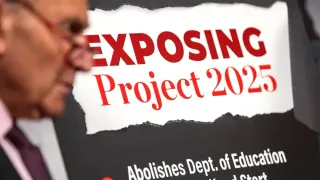October 11, 2015
Darlene Love: A Much Deserved and Dynamite Debut
Bill Biss READ TIME: 5 MIN.
Those who remember the Darlene Love from the Phil Spector "wall of sound" hit-making machine know her "twenty feet from stardom" is currently propelling this amazing lady of song to the heights to which she deserves with "Introducing Darlene Love."
Under the masterful production and arrangement of Stevie Van Zandt, and with powerhouse songwriters such as Bruce Springsteen, Jimmy Webb, Elvis Costello, Linda Perry and several others, Love is worthy of praise on all accounts with her delivery and magnitude.
IT'S "LOVE" ALL RIGHT... ON A GRAND SCALE.
I think I understand the tongue-in-cheek statement of titling your new album, "Introducing Darlene Love," but I wanted to hear your thoughts on how that title came to be?
I tell everybody Stevie [Van Zandt] doesn't tell me anything... He's all sneaky. I would say,"What are we gonna call this album?" One night, he called me and said, "I got it!" I said, "What is it?" He says, "I'm not telling you." (Laughs)
So, we did a listening party about a week later and they had this picture up and they unveiled it. It had the name of the album on the picture. I said, "You know what? When I think about this, you're right." We are introducing Darlene Love. She hasn't really been around on records since the early '60s. The Darlene Love that is today is not the same Darlene Love that worked back then. She's a whole other person, a grown woman who's been through a lot. It's great, because it's not "reintroducing" it's "introducing."
"Who Under Heaven" is a beautiful song that you present so majestically... How did this song find its way on the album?
Stevie is very good friends with Jimmy Webb. We had met Jimmy Webb's wife and he doesn't really write or do anything anymore. So, Stevie called him and Jimmy said, "Okay, what do you want? What kind of song do you want?" "Well, I think one like "MacArthur Park" [written by Webb] would be great!" (Laughter) That's how we came up with "Who Under Heaven." Even though, Stevie took it and made it into this anthem. I think that's going to be another one of those songs that becomes an anthem that everybody is going to want to sing. The treatment that Stevie gave it is unbelievable. That instrumental part... you can see a movie going on.
I also love "Love Kept Us Fooling Around," written by Linda Perry.
When we heard that song, we heard it right away. Stevie would get the song, he would learn the song and then I'd go to the office and he would play it for me on his guitar. He'd teach me the song and he said, "This is a good one." It's a sort of up-tempo song, and it tells such a wonderful story because that is so true in life. Love keeps people fooling around! (Laughs) If you hate somebody, you're not going to keep fooling around; you're going to put them to the side. All the lyrics to that song are so wonderful and so true to life.
You go all "Foxy Brown," or should I say Tina Turner, on the track "Painkiller." It's truly fierce.
It's one of those types of songs that you have to wait and see how we do it in person... it is so great. I don't just sing the lead on it by myself, because I have such great singers who sing with me. We all put our own twist on it, you're gonna love it.
When you're on the road, you have to have fun. Everything has to be exciting when you're out here. We're out here with one another, so everybody is a part of this. Even Stevie didn't think of it. I'm the one who thought of it. I said, "Boy, I thought of something Stevie didn't think of!" "Painkiller," twenty years ago, I would never have tried to sing a song like that.
You truly have your own "wall of sound," created anew by Van Zandt. He and Bruce Springsteen did a remarkable job capturing this essence for you in "Night Closing In."
It's funny. You do an album and maybe you have two or three songs... but with this one, I love every song. "Night Closing In" is such a wonderful song with the melodies and lyrics. I tell Steven that all the knowledge and stuff that he's gained in the last 20 to 30 years of working on television, doing the movies and "The Sopranos..." all of that stuff was knowledge for him. It took all of that knowledge and his wisdom. He knew what type of songs my voice needed. He wasn't going to go and get me no "cutie-cutie" or rhythm and blues, he knew he had to get something very powerful for me.
These are songs that I can really, really sing. When I recorded with Phil Spector, he didn't want my voice to sound powerful. He would actually speed the record up a bit so I would sound more youthful and not as powerful. Stevie wanted everything I had in me to come out in these records and he was able to do it. When Stevie gives me a song... I make it my song. If he wants me to do something a little bit different with it, I listen to him, because I trust him completely when it comes to this music.
Your voice is extremely powerful... it's like Mahalia Jackson. Boom.
Mahalia Jackson, she is one of my heroes.
Your duet with Bill Medley [The Righteous Brothers] on "Still Too Soon To Tell" is also incredible.
It was just a perfect song just to sing. No screaming or hollering, or your veins coming out of your neck!
We didn't know who initially was going to sing with me. First, we thought it was Elvis [Costello] and then I said, "Stevie, why don't you do it." He said "No, I'm really not right for it either." He came up with this idea
to call Bill Medley to see if he'd sing it, and he did. A perfect choice! I never thought of that.
What a treat. How did your record release party go?
Lord have mercy! That's all I can say. People just said, "Oh my god." It's one of those once-in-a-lifetime things, where you'd have to be there to witness it. Stevie likes to go "big," we had over 60 musicians on the stage and a 20-voice choir. There was just enough room for my singers and I. "Thank you Stevie... for leaving us a little room," I said. (Laughter) It was amazing."
 Copyright Rage Monthly. For more articles from Rage visit
Copyright Rage Monthly. For more articles from Rage visit 





